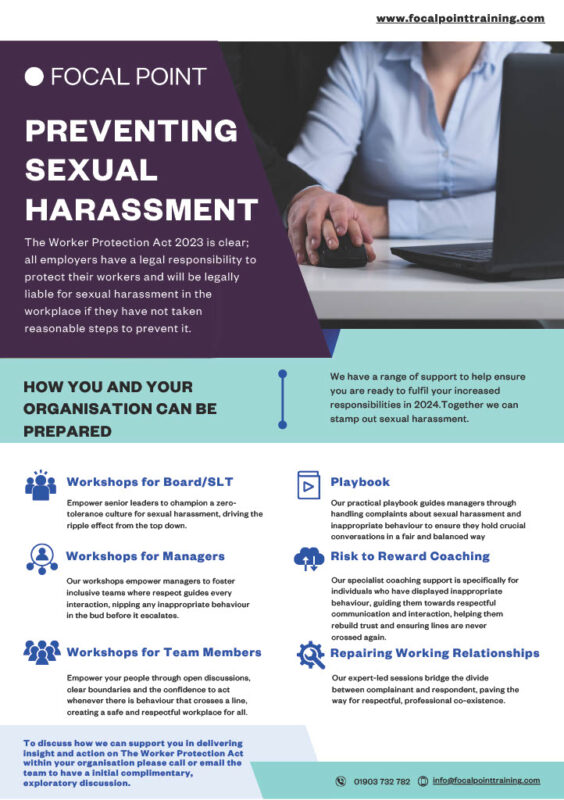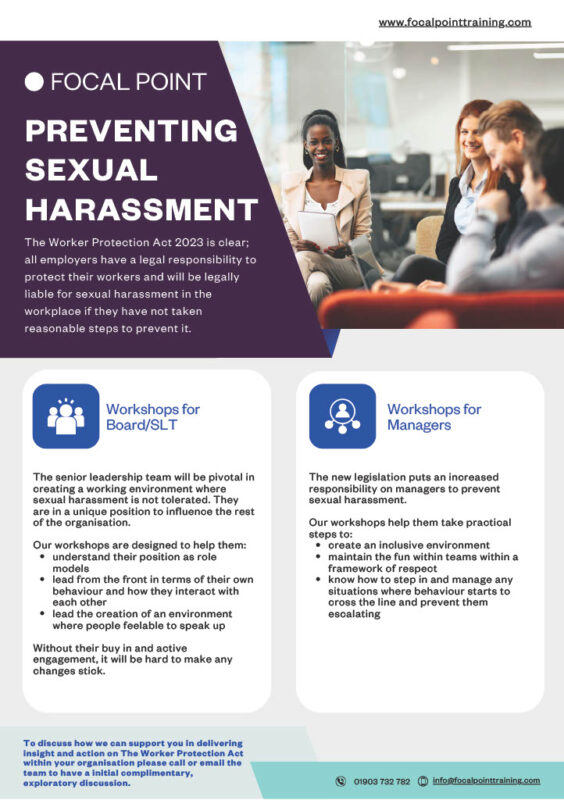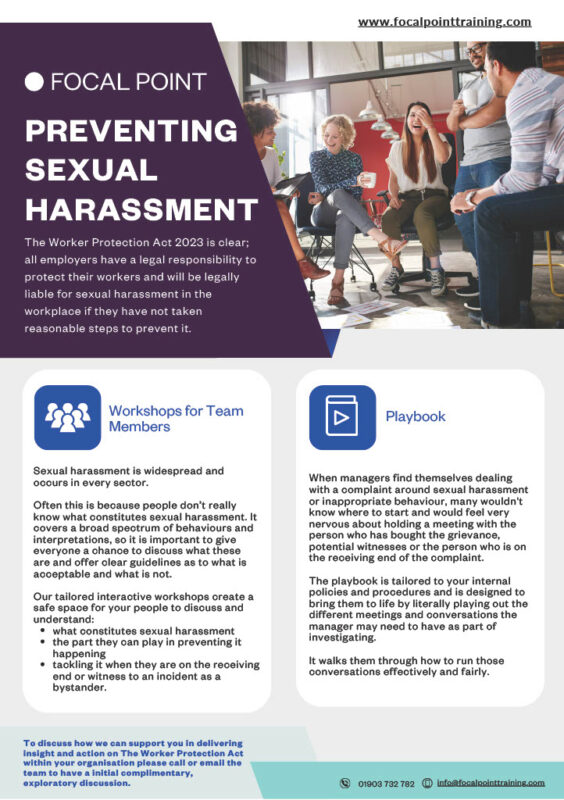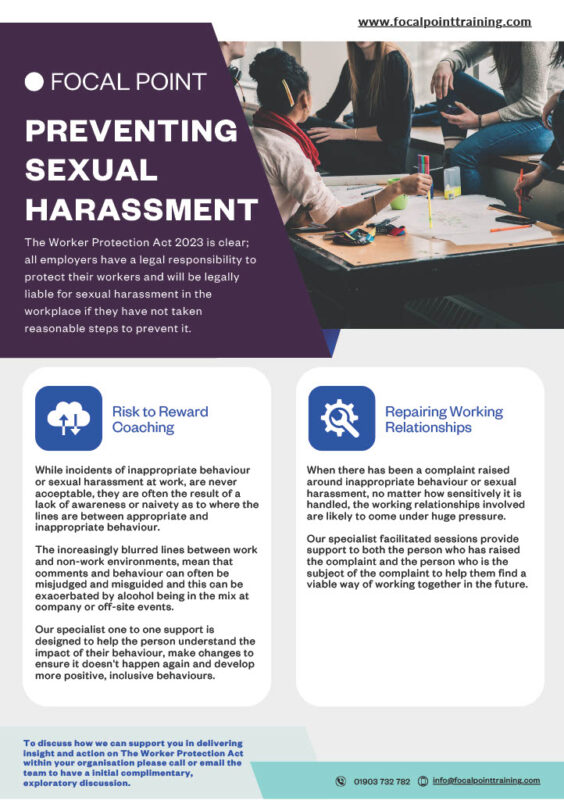Resources
‘Exchanging Expectations’ by Tracy Powley, Focal Point Training & Consultancy 2025. CITMA. Read Article
‘Building High Performing Teams’ by Tracy Powley, Focal Point Training & Consultancy 2025. The Edge Magazine, The Institute of Leadership. Read Article.
‘Halting Harassment’ by Tracy Powley, Focal Point Training & Consultancy 2024. The Edge Magazine, Institute of Leadership and Management (ILM). Read Article
‘Walk the Line’ – How managers can stop banter from morphing into inappropriate behaviour; by Tracy Powley, Focal Point Training & Consultancy 2017 The Edge magazine: Institute of leadership and Management (ILM) Read Article
Sexism in the City report from Treasury Committee. Read here.
Comprehensive report on sexual harassment in the workplace from the TUC. Read here.
Sexual harassment report from Government Equalities Office. Read here.
Stella Chandler from Focal Point and Padma Tadi-Booth from Irwin Mitchell discuss the upcoming Worker Protection Act in this 2024 webinar. Watch here.
Mental health of young men in financial services (CISI) – Stella Chandler in discussion with Ross Jefferies & Stephen Harris – Listen HERE
How to manage banter and build people’s confidence to call it out. In this podcast Stella shares her insights and the research Focal Point have done with CISI Listen Here
“It’s just a joke!” But is it? – CISI and Focal Point discuss their recent research on banter in the workplace Listen Here.
Leaders Council interview with Stella and Tracy about creating respectful working environments – Listen Here
Radio4 In Business – Confronting Sexual Harassment at Work (Featuring Focal Point Training & Consultancy) Listen Here
BBC Radio Kent Breakfast Show, Stella Chandler, and Tracy Powley are interviewed about what constitutes sexual harassment following the Notting Hill Carnival incident
‘Mastering Civility: A Manifesto for the Workplace’ Christine Porath, December 2016
Encouraging a Speak-Up Culture – A Good practice guide from the Institute of Business Ethics November 2017
Inclusive Leadership: The Definitive Guide to Developing and Executing an Impactful Diversity and Inclusion Strategy: – Locally and Globally – Charlotte Sweeney & Fleur Bothwick Pearson 1st edition
Diversify – ‘How to challenge inequality and why we should’ June Sarpong, August 2017 published by HQ
The Value of Difference: Eliminating Bias in Organisations, Binna Kandola, Pearn Kandola Publishing 2009




The Implicit Association Test Read More
Project Implicit is the product of a team of scientists whose research produced new ways of understanding attitudes, stereotypes and other hidden biases that influence perception, judgement, and action.
Project Implicit translates that academic research into practical applications for addressing diversity, improving decision-making, and increasing the likelihood that practices are aligned with personal and organizational values.
The Implicit Association Test (IAT) measures attitudes and beliefs that people may be unwilling or unable to report. The IAT may be especially interesting if it shows that you have an implicit attitude that you did not know about. For example, you may believe that women and men should be equally associated with science, but your automatic associations could show that you (like many others) associate men with science more than you associate women with science.
Preventing Sexual Harassment – Focal Point & CIEEM discuss whether we are doing enough in this 2025 webinar. Watch here
Preventing Sexual Harassment – Focal Point & CIEEM discuss whether we are doing enough in this 2025 webinar. Watch here
Take the next step
When helping you to manage inappropriate behaviour and create a truly inclusive workplace, there is nothing we haven’t seen. We approach each project with the utmost discretion. Contact us today to discuss the best way forward for your situation.